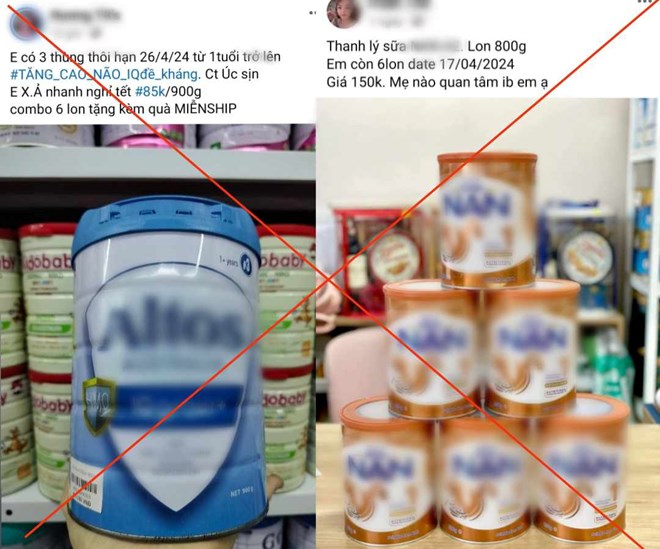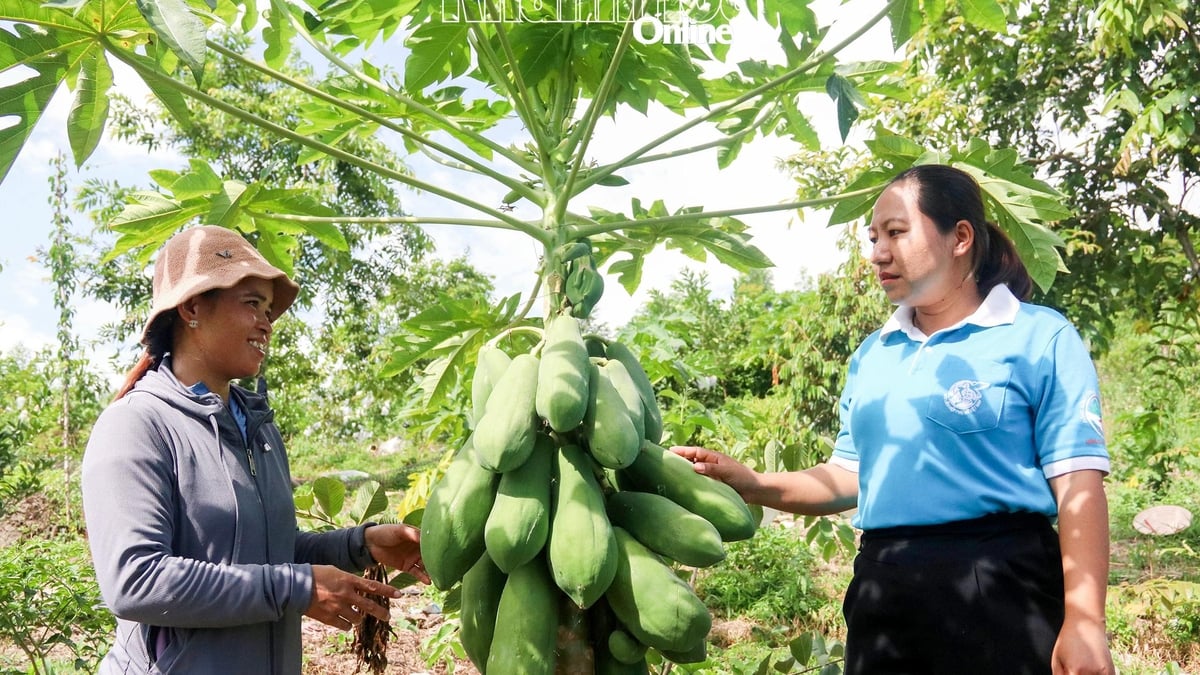
Hard to control
According to Lao Dong reporters, although they are close to their expiration date, many people are still selling items such as dried foods, frozen foods, fresh milk, powdered milk, etc. on social networks at prices 50-70% lower than the original price, potentially affecting the health of consumers on the occasion of Lunar New Year 2024.
Ms. Nguyen Thi Nhung (living in Hoang Liet ward, Hoang Mai district, Hanoi ) said that recently she saw many items for sale on social networks that were close to expiration date, or even expired, such as food, candy, frozen foods...
"Many accounts on social networks like Facebook, Zalo... regularly advertise food items, frozen foods, and powdered milk that are close to their expiration date at shockingly low prices. Even though the product's expiration date is only about 5-7 days, many agents and grocery stores in these groups have recently posted information about finding sources of goods to sell for profit near Tet," said Ms. Nhung.
Contacting a Facebook account named Ngoc Ha who is selling milk products with an expiration date of April 17, 2024, the reporter was informed that the product is being sold at a discount of only 150,000 VND/carton, ready to ship to provinces and cities.
According to Ngoc Ha, the original price of this item on the market is currently fluctuating around 500,000-700,000 VND/box, a decrease of more than 70% because this is a product that is close to its expiration date.
Not only selling powdered milk, Ngoc Ha also has many other sources of near-expiry goods such as candy, frozen foods, food... that are almost expired but are regularly ordered by many grocery stores in Hanoi.
Tightening food origin and safety on the occasion of Tet
At the meeting on January 23, Mr. Nguyen Minh Hung - Deputy Director of the Hanoi Market Management Department - stated that this year the biggest priority for businesses is selling goods, the market management force will check and control the situation of poor quality goods, especially the situation of "erasing dates" of goods.
According to the Deputy Director of the Hanoi Market Management Department, recently in Dong Anh district, the authorities inspected and seized over 50 tons of goods with signs of date erasure, which is a sign of customer deception. Currently, the authorities are completing the dossier to transfer to the Dong Anh District Police Investigation Agency for handling and settlement according to their authority.
The Hanoi Market Management Department has directed the Market Management Teams to continue to strengthen inspection and control of establishments producing and trading in goods and services managed by the industry and trade sector such as alcohol, beer, soft drinks, cakes, jams, candies, foods processed from starch, industrial products, and sugar, focusing on inspection, control, and handling of violations in the production and trading of handmade alcohol of unknown origin.
At the same time, coordinate with relevant agencies to strengthen control of establishments producing and trading food products, establishments trading, transporting and processing meat, meat products, livestock, poultry, fresh seafood, frozen foods, fruit and food stores in the market on the occasion of Lunar New Year 2024...
During the peak of Lunar New Year, people's demand for food increases, potentially posing a risk of counterfeit goods, poor quality goods, goods of unknown origin, and expired goods mixed into the market...
The Market Management Department ( Ministry of Industry and Trade ) said that in 2023, market management nationwide detected and handled 6,773 violations, administratively sanctioned over 36.3 billion VND, and confiscated goods worth 31.6 billion VND.
In 2023, the Market Management force nationwide inspected and examined 71,928 cases (an increase of 1.4% over the same period in 2022), detected and handled 52,351 violations (an increase of 19%), transferred 174 cases with signs of crime to the investigation agency (an increase of 37%), and collected over 501 billion VND for the budget (an increase of 2.2%).
Source



















































![[Maritime News] More than 80% of global container shipping capacity is in the hands of MSC and major shipping alliances](https://vphoto.vietnam.vn/thumb/402x226/vietnam/resource/IMAGE/2025/7/16/6b4d586c984b4cbf8c5680352b9eaeb0)













































Comment (0)